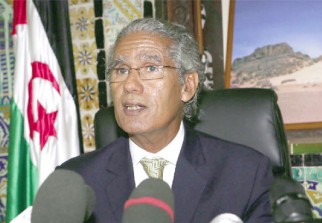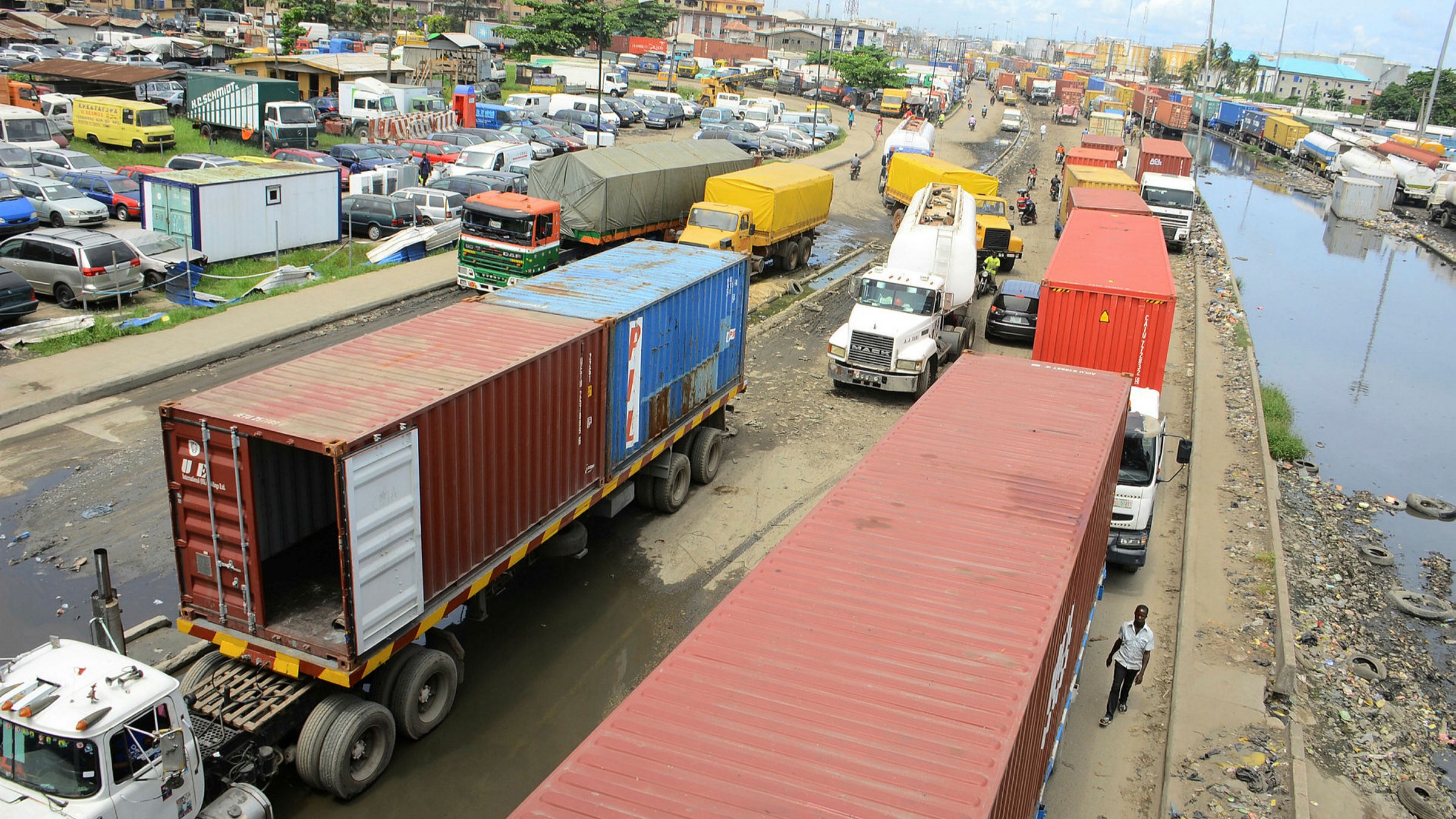The Kingdom of Morocco is the latest state in the Maghreb and West Asia to recognize Tel Aviv. In the case of Morocco, the administration of
President Donald Trump has endorsed the crafting of a new map depicting this country absent of the internationally recognized Western Sahara, whose people are still seeking national independence.
Since the mid-1970s when Spain abandoned its colonial claims on the Western Sahara, the governments of Morocco and the U.S. have thwarted every attempt to win the liberation of the Saharawi people inhabiting the area. For over 40 years, the Polisario Front has waged a protracted struggle on behalf of the provincial Saharawi Arab Democratic Republic (SADR), which is recognized as the legitimate representatives of this territory by the United Nations and the African Union (AU).
The demands of the Polisario Front and the SADR are centered on the 1991 U.N. Security Council Resolution 690 mandating the holding of an internationally supervised election on whether the Saharawi people want independence. Judging from the support shown to the SADR by residents of the territory and among progressive elements within the international community, a majority of the people would undoubtedly vote for total independence.
An armed campaign was waged by the Polisario Front from 1975-1991, when a U.N.-brokered ceasefire was announced with the understanding that the referendum on independence would be held, resulted in a modicum of hope for a lasting resolution to the crisis. For nearly three decades, Morocco has defied the agreement while maintaining control over the Western Sahara.
Recently in November, the SADR suspended its ceasefire with Rabat. The reissuing of a map which liquidates the SADR question is clearly a provocation to more violence and instability.
The Information Ministry of the Polisario Front said of the decision by Rabat and Washington to deny the legitimacy of their liberation movement that: “Trump’s decision changes nothing in legal terms over the question of Sahrawi because the international community does not recognize Moroccan sovereignty over Western Sahara. It constitutes a flagrant violation of the UN charter… and the founding principles of the African Union and hampers the efforts of the international community in finding a peaceful solution to the conflict between the Sahrawi Republic and the Kingdom of Morocco…. The Polisario and Sahrawi government condemn in the strongest terms the fact that outgoing American President Donald Trump attributes to Morocco something which does not belong.”
On December 21, the United Nations Security Council was briefed on the situation and its implications for the region. No other Western imperialist state has taken a similar position to that of Washington. If U.S. allies in Europe decide to follow its lead on the Western Sahara it would constitute an historical repudiation of the U.N.’s anti-colonial resolutions which have been important to many independence struggles, such as in Africa and Latin America.
After the Security Council briefing conducted by U.N. Assistant Secretary-General for Africa
Bintou Keita and Colin Stewart, director of the U.N. peacekeeping mission in Western Sahara,
Stephane Dujarric, spokesperson for the U.N., emphasized:
“There are no major operational changes from our part. Our position on the announcements regarding Western Sahara is unchanged and that … we continue to believe that a solution can be found through dialogue based on the relevant Security Council resolutions.” (See
this)
It remains to be seen what the position of the incoming Biden-Harris administration will be in regard to the Western Sahara and other anti-colonial resolutions. The AU, which is currently chaired by Republic of South Africa
President Cyril Ramaphosa, has recognized the SADR and the Polisario Front for nearly four decades.
South African Ambassador to the U.N.
Jerry Matjila stated in the aftermath of the briefing:
“Decisions contrary to multilateral collective decisions must be discouraged and unequivocally disregarded. We believe that any recognition of Western Sahara as part of Morocco is tantamount to recognizing illegality as such recognition is incompatible with international law.”
Recognition of Tel Aviv by Rabat is Part of a Broader Imperialist Strategy
Coinciding with this blatant affront to the Saharawi people, the AU and the U.N., was the decision by Morocco to “partially” recognize Israel. This announcement follows other U.S.-brokered deals involving Saudi Arabia, the United Arab Emirates (UAE), Bahrain and the Republic of Sudan.
Morocco has for years maintained close ties with Washington. The most recent announcement on Israel will have negligible influence on the situation in Palestine and other geo-political regions in North Africa and West Asia.
Yet the underlying reasons behind this diplomatic offensive by the Trump White House are designed to enhance Washington and Wall Streets interests within business, military and foreign policy structures in these various countries. A meeting at the White House in September attended by representatives of the UAE, Israel and the U.S. administration unveiled the so-called Abraham Accord. The agreement is related to the procurement of Pentagon and Defense industry weaponry for the UAE which has already engaged in military operations with the U.S. for more than a quarter century.
The signed agreement read in part as follows:
“Recalling the Treaties of Peace between the State of Israel and the Arab Republic of Egypt and between the State of Israel and the Hashemite Kingdom of Jordan, and committed to working together to realize a negotiated solution to the Israeli-Palestinian conflict that meets the legitimate needs and aspirations of both peoples, and to advance comprehensive Middle East peace, stability and prosperity; Emphasizing the belief that the normalization of Israeli and Emirati relations is in the interest of both peoples and contributes to the cause of peace in the Middle East and the world; Expressing deep appreciation to the United States for its profound contribution to this historic achievement;….” (See
this)
Of course, these accords engineered by the White House have been condemned by the Palestinian national movement and other anti-imperialist states and organizations. Algeria, which has been a staunch supporter of the SADR, rejected the decision by Morocco to partially normalize relations with Israel. Hamas, the Palestinian resistance movement, has strongly objected to the decisions by Morocco, Sudan and the Gulf Monarchies.
With specific reference to the U.S.-induced deal established between Israel and Morocco, the Washington, D.C.-based Brookings Institution reported that:
“According to the agreement, the two states will resume partial diplomatic ties in the near future, establish direct flights, and promote economic and technological cooperation. However, Morocco has not committed to opening an embassy in Israel (rather, it will open liaison offices, as it had prior to 2002) nor will it establish full diplomatic relations. Within a day of Trump’s announcement, his administration sent notice to Congress about a potential $1 billion arms sale to Morocco — a similar move to the one the administration made following the United Arab Emirates’ normalization with Israel.” (See
this)
Sudan through the recently passed Sovereign Immunity bill in the U.S. Congress, which was contingent upon normalization with Israel among other issues, is slated to provide financial assistance to the interim Sovereign Council led by Prime Minister Abdalla Hamdok and Chair General Abdelfattah al-Burhan. Treasury Secretary Steve Mnuchin was scheduled to visit Sudan, the UAE, Israel, Qatar and Egypt in early January in his last foreign mission for the Trump administration.
The Sudan Tribune reported that in exchange for Khartoum’s shift in foreign policy:
“The U.S. will disburse $111 million to pay off part of Sudan’s bilateral debt, and $120 million to help pay off its debt to the International Monetary Fund (IMF). Also, the legislation provides support to Sudan with $700 million until September 2022. The Sudanese government signed a bilateral claims agreement with the United States last month that stipulated removing Sudan from the list of countries that sponsor terrorism and passing the ‘legal peace’ bill in return for paying $335 million to settle with the victims of terror attacks.” (See
this)
Therefore, these agreements and accords along with accompanying legislation in Washington, have more to do with the imperialist interests of the U.S. and its allies than the improvement of the living conditions and development prospects in Africa and West Asia. Another offer by the U.S. has been made to Indonesia, the largest-populated Muslim nation in the world. Jakarta has rejected the offer. (See
this)
In Africa, the Djibouti President Ismail Omar Guelleh has stated that the conditions “are not ripe” for diplomatic relations with Israel. Nonetheless, Djibouti in the Horn of Africa, is the location of the largest Pentagon military base at Camp Lemonnier. The U.S. Africa Command (AFRICOM) utilizes the small country to engage in aerial surveillance and military strikes in other African states and West Asia.
These diplomatic and economic machinations by Washington and Tel Aviv will not halt the people of Palestine, Western Sahara and other oppressed nations from waging an unrelenting campaign for their national liberation.

















